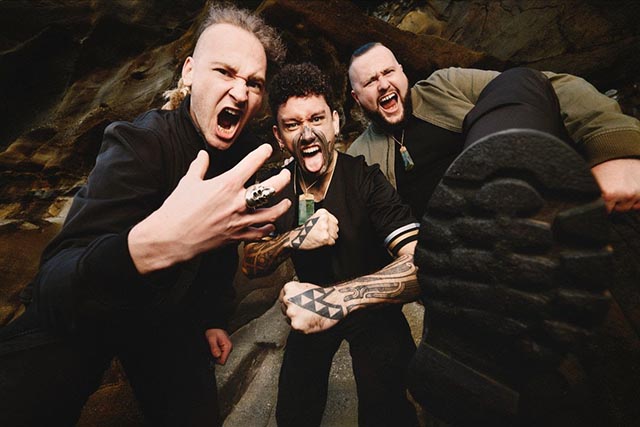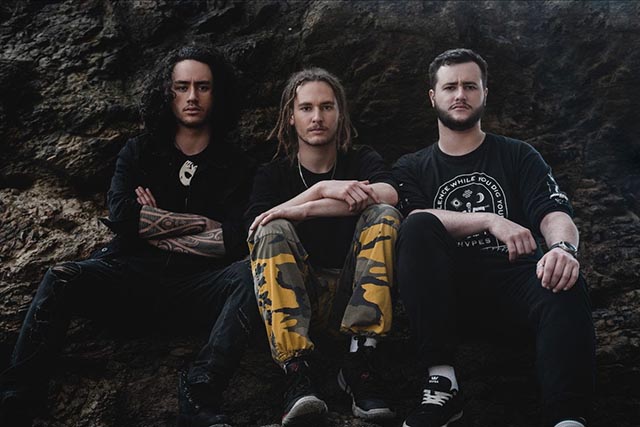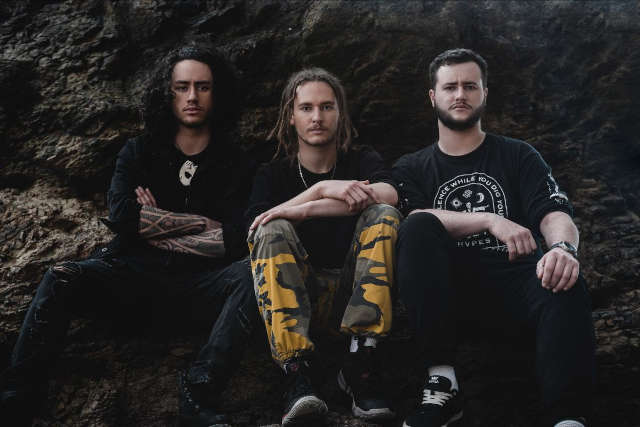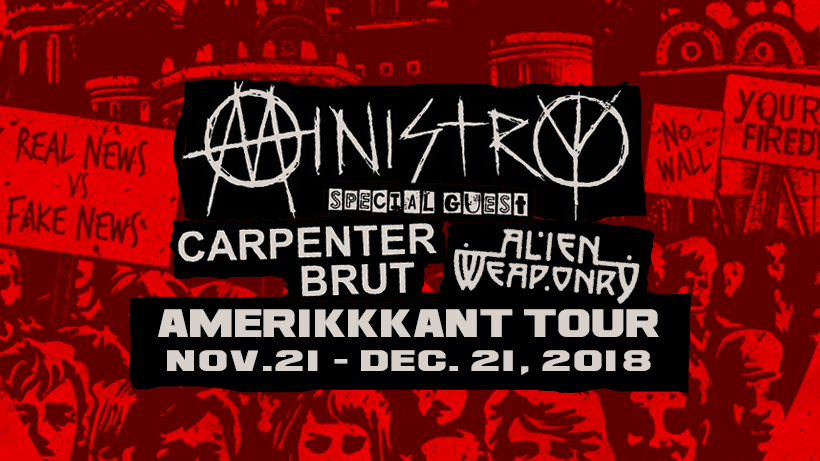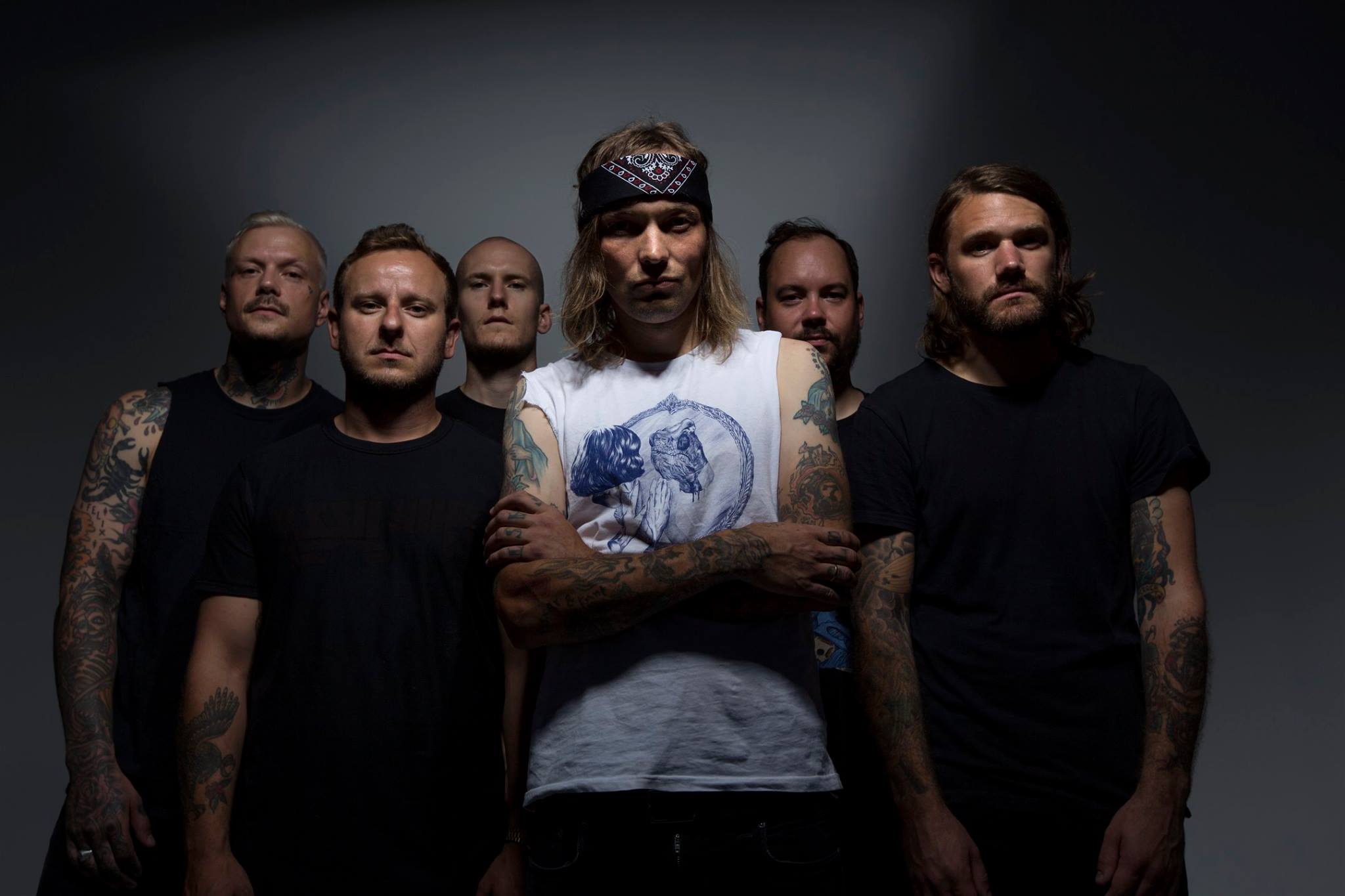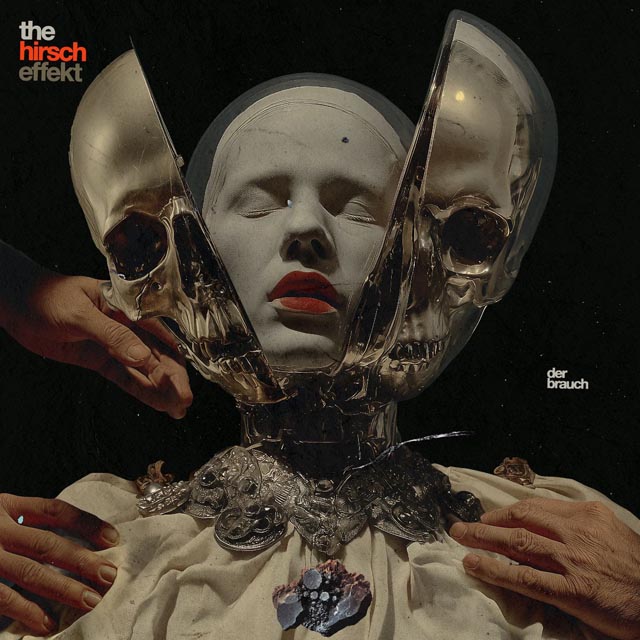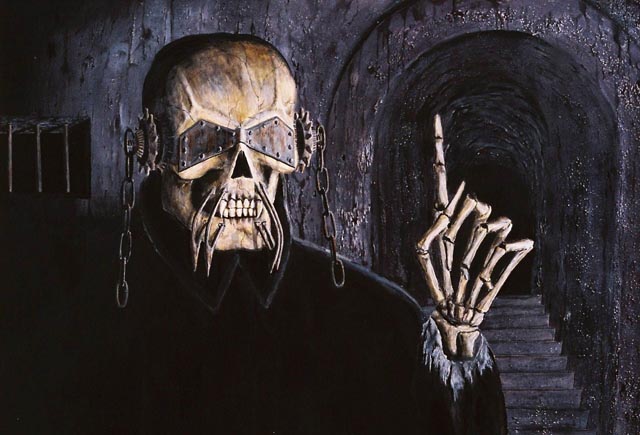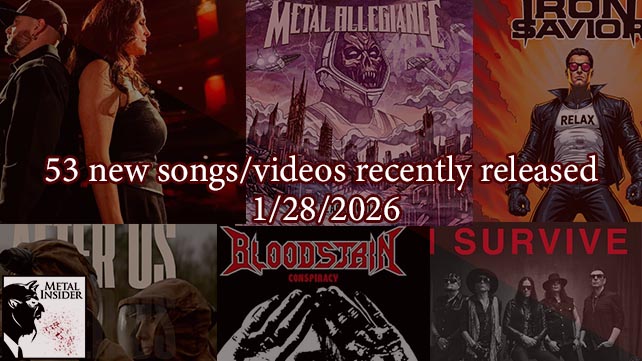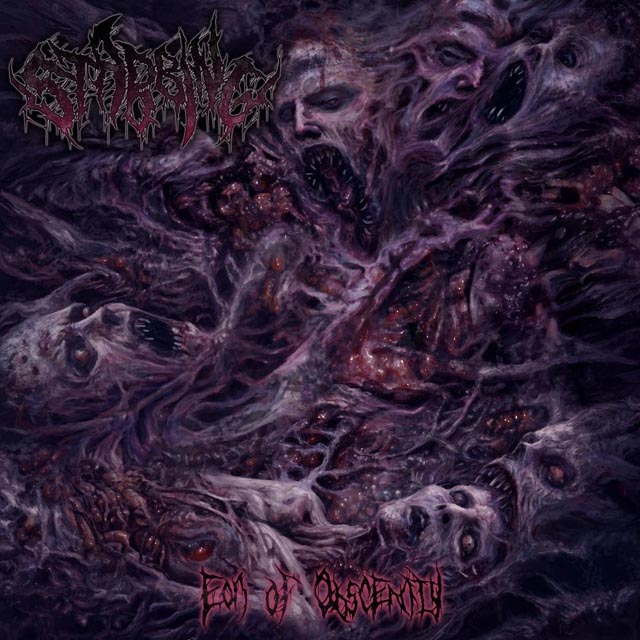It’s been just over a month since Alien Weaponry unleashed their third full-length album, Te Rā, and the New Zealand trio have wasted no time hitting the road, most recently supporting Kerry King on his debut solo tour. On Te Rā, the band channels a renewed intensity and growth. Metal Insider caught up with the band between their busy schedule and being on the road for a deeper dive into their latest release.
What was the process like writing the new album Te Rā?
Tūranga Morgan-Edmonds (bass/backing vocals): This process was a little different because it was my first time being a full part of the writing process with Alien Weaponry. I kind of changed up the whole process in favor of writing separately at home into a DAW and then after x number of weeks, we brought together everything we wrote and workshopped the more finalized ideas as a band. It was a more efficient writing process that allowed us to develop an excess amount of songs (e.g. 30 demos from which to choose our favorite 10). Compared to just sitting in a room together jamming until you stumble across something you like, which worked to get the ideas started but made it harder to fine tune those ideas in a timely manner.
Te Rā has been described as your heaviest and most mature album yet. How have you evolved creatively since 2021’s Tangaroa?
Tu: We still see a lot of people online referring to the band as “teenagers.” We always joke with each other that, according to the internet, we’ve been 16 for six years haha. But obviously we’re in our mid-20s now and with that comes all those extra years of being able to refine our skills as musicians. Creatively with this 3rd album we wanted to try to combine the melodic and catchy song writing of the 1st album and the musical technicality of the 2nd album to further develop our sound. We’ve actually seen people online saying the singles we’ve released so far feel like exactly that combination, so it’s good to know we’ve achieved that in some people’s eyes.
You mentioned pushing yourselves further for this record, including scrapping entire sections of songs, can you give an example on a track that went through some major changes?
Tu: The opening track “Crown” was actually constructed out of two demos that we didn’t consider strong enough to be on the album and then our producer Josh Wilbur said, “There’s some great stuff in both songs so how about we chop them up to take the best parts and make one completely new song,” and clearly we thought it much better this way to make it the very first track on the album.
“1000 Friends” is a bold statement on the declining state of social media, lacking the purpose many thought it was built for. You hit major points such as how it now impacts the human psyche. What do you think is the biggest challenge for younger generations growing up in a digital world from social media to AI, to further lacking human connection?
Lewis de Jong (guitars, lead vocals): I think that people have a challenge socializing in the real world and they often compare themselves to others and their images online.
What was it like collaborating with Randy Blythe for the song “Taniwha?”
Tu: Knowing that Lamb of God is Lewis’ favorite band of all time, I had actually reached out to Randy in secret, in hopes that he would say yes and it would make for a great surprise (or if he had said no then no one would have known it ever happened haha). Obviously he said yes and even though Josh recorded him separately at his home, Randy was really hands on with his communication back and forth with me to ensure his lyrical content was respectful to the subject matter of the song. He even threw some Māori words in there, which was amazing!
Lewis: It was mind-blowing. Lamb of God is my favorite band of all time and it is crazy to me that someone like Randy is now featured on one of our songs.
Bringing in Māori within your music has been a constant since 2018’s Tū, have you since noticed a growing interest in Māori culture from fans on an international scale?
Tu: The interest in Māori culture has grown significantly in recent years, particularly on social media. Haka specifically always seems to go viral and quite often underneath videos of haka there will always be one person talking about Alien Weaponry! One of the rare positives to the internet and social media is its ability to expose people to new things that they otherwise would be completely unaware of, and it’s awesome to see the growing love for our culture around the world.
You guys reached another milestone this year being invited to tour alongside the legendary Kerry King, how has the experience been for you?
Tu: The best part about getting the opportunity to tour with such legendary names/bands is the opportunity to learn so much valuable knowledge from not only the bands but the crews as well. In the case of Kerry King, he’s been a touring musician longer than any of us have been alive! The amount of experience and expertise he has is unmatched and it was great to be able to witness and learn from that.
Since forming as teenagers, you’ve grown up in the public eye. How has that shaped your personal and professional lives?
Lewis: I feel like it definitely makes you more conscious of your actions because people potentially will recognize you and their response is very different when you’re young.
If you could collaborate with any artist or band in the future, who would it be and why?
Tu: There are a lot of bands that sing in their native languages that I think would make for awesome collaborations. A close-to-home option would be fellow Polynesian Metal band Shepherds Reign but if we were to branch out, bands like Bloodywood or The Hu would also be sick!
Lewis: My usual answer to that question is Lamb of God but now we’ve ticked that off the list! Haha
Is there anything else you’d like to say or add about the new album?
Tu: Just thanks to all our fans for the continued support, and a warm welcome to all the new listeners/readers! We’re very excited for everyone to dive into this album.
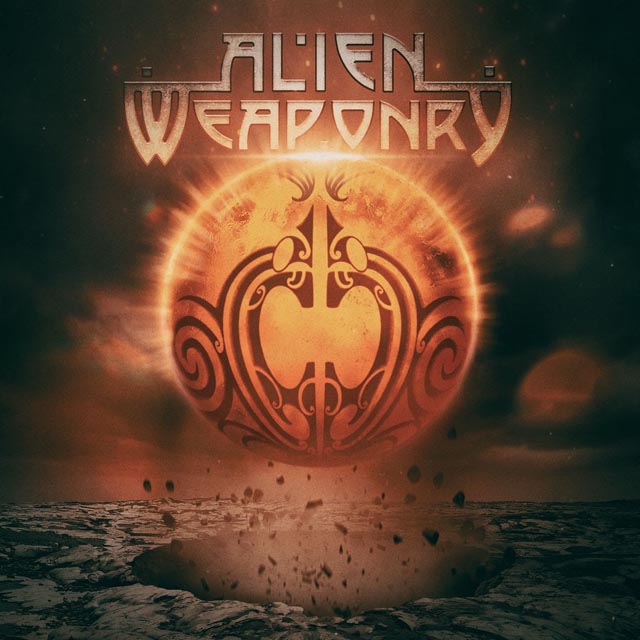
Feature Image Photo Credit: Frances Carter

